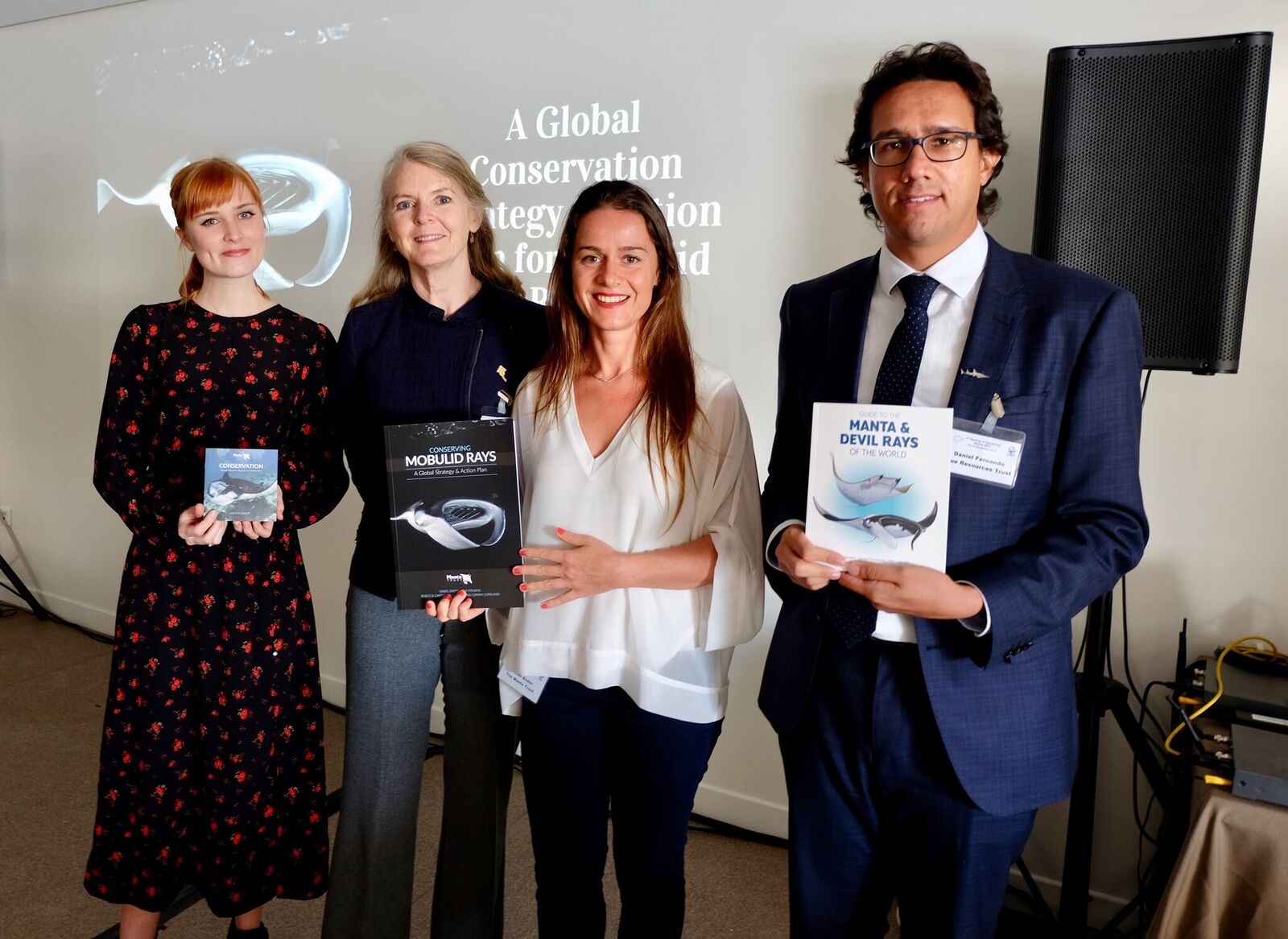Manta Trust launches global strategy & action plan for mobulid ray conservation
Earlier this week, Save Our Seas Foundation’s partner organization, The Manta Trust launched a global conservation strategy and action plan dedicated to manta and devil ray conservation. The document was unveiled and presented by representatives of the organization at the third Meeting of Signatories (MOS3) to the Memorandum of Understanding on the Conservation of Migratory Sharks (CMS) in Monaco.

Representatives of Manta Trust and Save Our Seas Foundation at the launch of the strategy and action plan in Monaco
Manta and devil rays, known collectively as mobulids, are some of the most fascinating creatures in our oceans. Close relatives of all sharks and rays, these filter feeding fish range throughout the tropical and sub-tropical oceans of the world. Mobulids also captivate and connect people to our oceans through eco-tourism, which contributes $140 million (USD) each year to the global economy.
Over the last two decades, global targeted fishing for these species has greatly increased. This is primarily due to the rising demand for mobulid gill plates, which are used in an Asian health tonic. Mobulids are also caught incidentally as bycatch in more than 30 fisheries in 23 countries. As a result, some mobulid populations are experiencing declines of more than 90 per cent.
Recently, significant steps have been taken to improve the conservation status of mobulids. This includes their listing on the Convention for International Trade of Endangered Species (CITES) and CMS Appendices, as well as national protection measures. In spite of this, declines continue and a comprehensive approach and strategic plan has been needed to ensure long-term conservation will be successful. Manta Trust’s new strategy has answered this need.
In their strategy, The Manta Trust identifies clear actions towards tackling the direct threats mobulids face including fisheries (targeted and bycatch), and tourism. The document also addresses the indirect threats that mobulids are exposed to as a result of environmental changes, such as reef degradation and pollution.
For each action that can be influenced by Parties (NGOs, governments, industry or researchers), they have defined the time-frame, level of investment, priority, scale and responsible party. To ensure the most effective use of limited resources, they also identified priorities for each action that practitioners, donors, and policy makers can utilise.
The strategy can be accessed here.